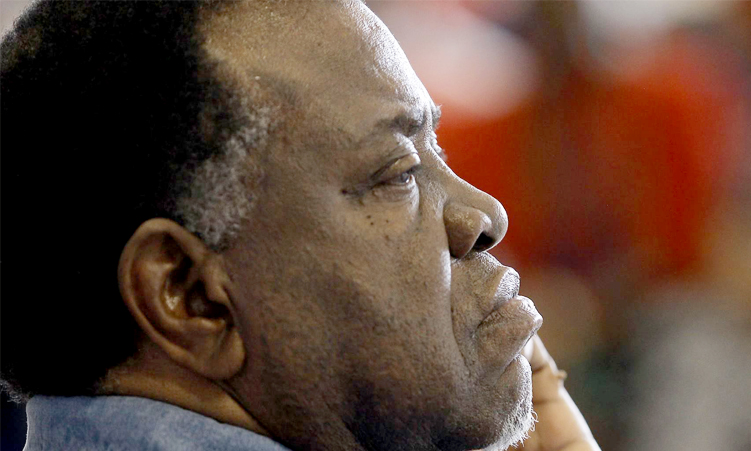An agreement about the servicing of land in urban areas that the Affirmative Repositioning movement reached with president Hage Geingob eight years ago is not legally enforceable, the Supreme Court has ruled.
At a meeting that Geingob had with Affirmative Repositioning (AR) representatives on 24 July 2015, an agreement on the “massive servicing of land” was reached – and that was all, appeal judge Sylvester Mainga said in a judgement delivered in the Supreme Court yesterday.
The agreement between AR and the president did not involve an intent to contract in the sense that is required for a legally enforceable contract, Mainga said.
“The parties agreed that the policy statement be acted on actively and nothing else,” he said.
“At most, they are binding in honour only – the president could walk away from that statement given other pressing issues of the republic, for example drought, a health pandemic, etc.,” Mainga remarked.
Even if a contract was envisaged with the agreement, such a contract would be against public policy, because AR could not rely on an illegal intended plan to occupy vacant land in urban areas to claim it has fulfilled its end of the deal, Mainga said as well.
The Supreme Court’s judgement dealt with an appeal that the government and the president filed after exceptions raised by the government and president against AR’s claim against them were dismissed in the High Court in February 2021.
In its claim, AR says the movement, represented by Job Amupanda, and the government, represented by Geingob, on 24 July 2015 reached an agreement that 200 000 plots would be serviced countrywide and that at the same time AR would not continue with “its radical programme of action to occupy vacant land in urban areas”.
According to AR, it complied with its side of the agreement by not continuing with its campaign to occupy vacant land in urban areas. It also says over the more than five years that passed from the time the agreement was reached until AR filed a case against the government and the president in the Windhoek High Court in September 2020, the government failed to service 200 000 plots of land, and instead managed to provide municipal services to fewer than 15 000 plots.

AR asked the High Court to direct the government to provide basic municipal services to 200 000 plots within a period of two years, or to service an additional number of plots to the number already serviced since 24 July 2015, so that the total number of plots serviced reach 200 000.
Mainga noted in the Supreme Court’s judgement that the question which arose was whether the agreement between the government and AR was formulated with the intention that it would be final and binding and legally enforceable.
According to the written text of “agreed resolutions” emanating from the meeting between Geingob and AR representatives, Mainga said, the resolutions all had their origins in Geingob’s inaugural speech as president in 2015, repeated in his first state of the nation address, in which he declared war against poverty and stated that there would be “a massive nationwide project earmarked towards servicing urban land and land allocation”.
“The whole context of the resolutions is the idea of the massive urban land servicing project, a brainchild of the president,” Mainga also remarked.
“The issue of land was national, and was not of a commercial or business nature. The resolutions are silent on or lack the binding nature of a contract. The parties agreed on the massive servicing of land and that was all,” the judge continued.
He noted as well that in terms of the law on contracts, a contract promising a reward for not committing an unlawful act – such as AR’s undertaking not to continue with its plan to occupy vacant urban land, in exchange for the government’s undertaking to service 200 000 plots of land countrywide – is void.
The High Court should have concluded that the resolutions agreed between AR and the government were policy utterances and nothing else, Mainga said.
The court set aside AR’s claim against the government and president, and ordered that AR should amend its claim, if it is advised to do so, within one month. If that is not done, the government and president may apply for the dismissal of AR’s legal action, the court ordered as well.
AR was ordered to pay the legal costs of the government and president in the appeal and in proceedings in the High Court.
Acting judges of appeal Theo Frank and Shafimana Ueitele agreed with Mainga’s judgement.
AR did not take part in the appeal hearing in June, during which the government and president were represented by Dennis Khama.
Stay informed with The Namibian – your source for credible journalism. Get in-depth reporting and opinions for
only N$85 a month. Invest in journalism, invest in democracy –
Subscribe Now!








